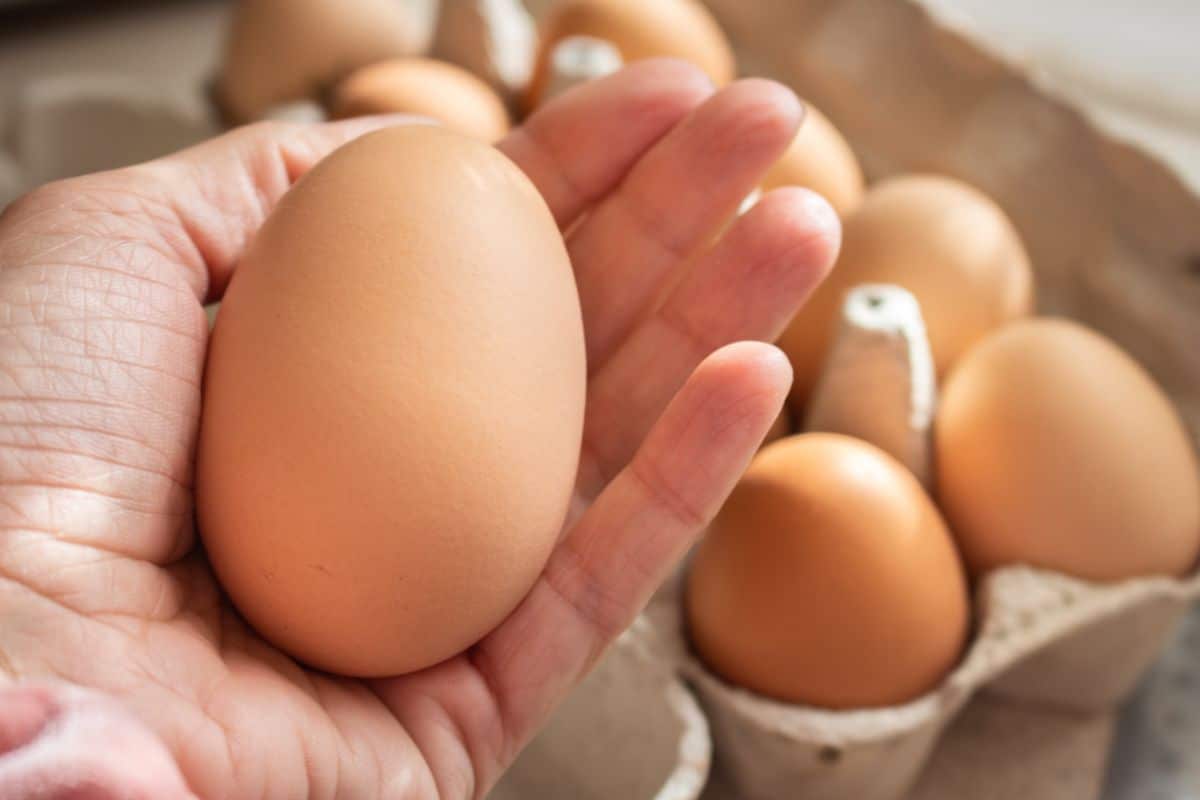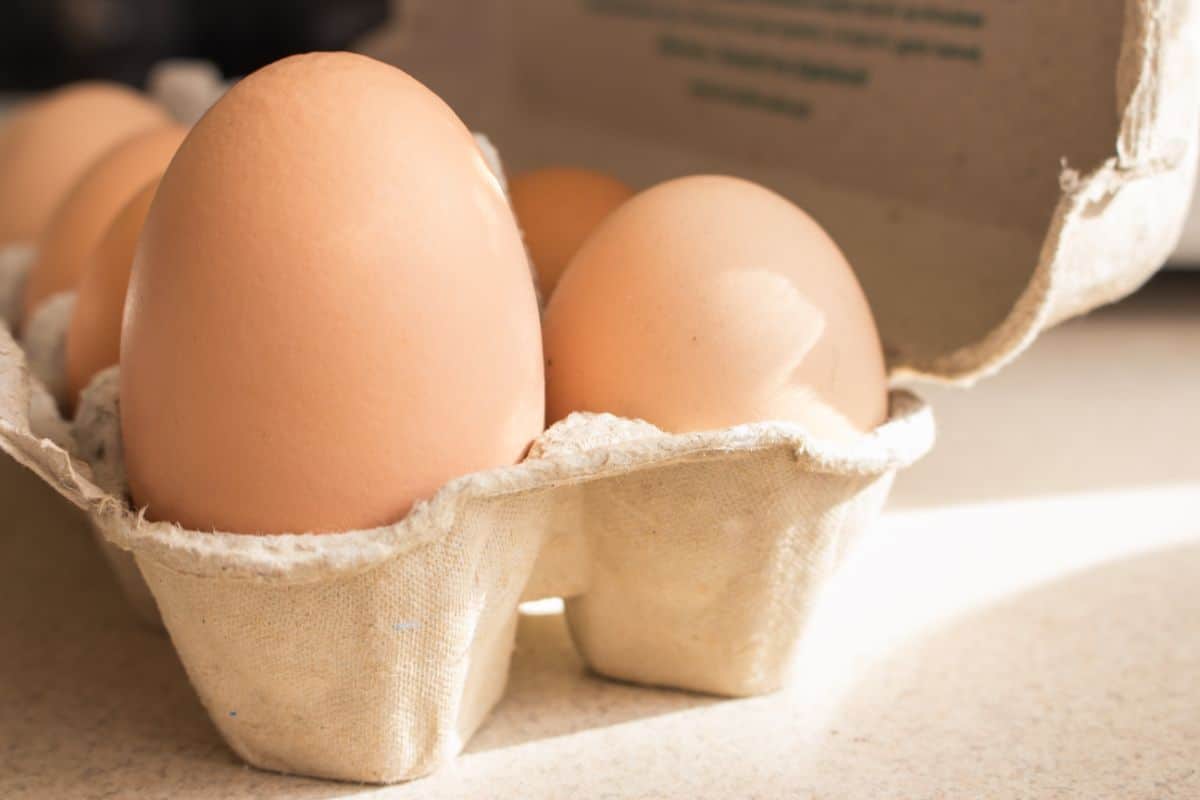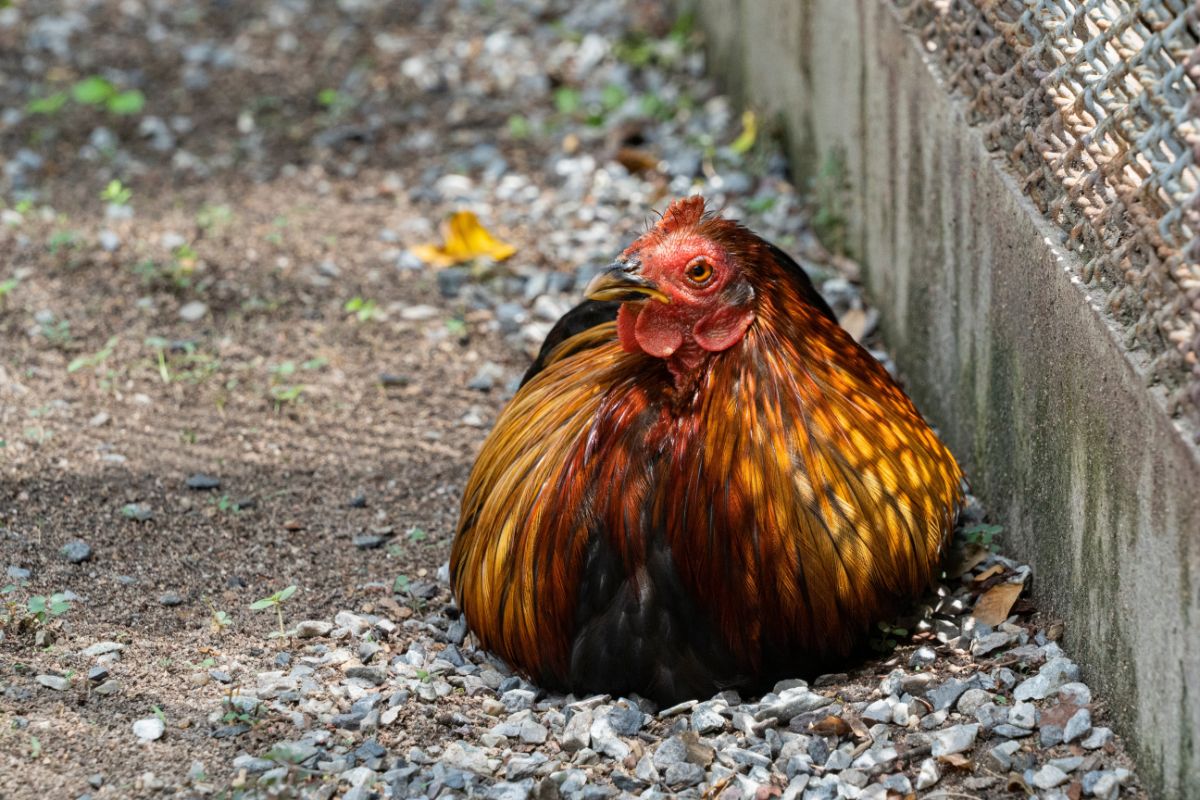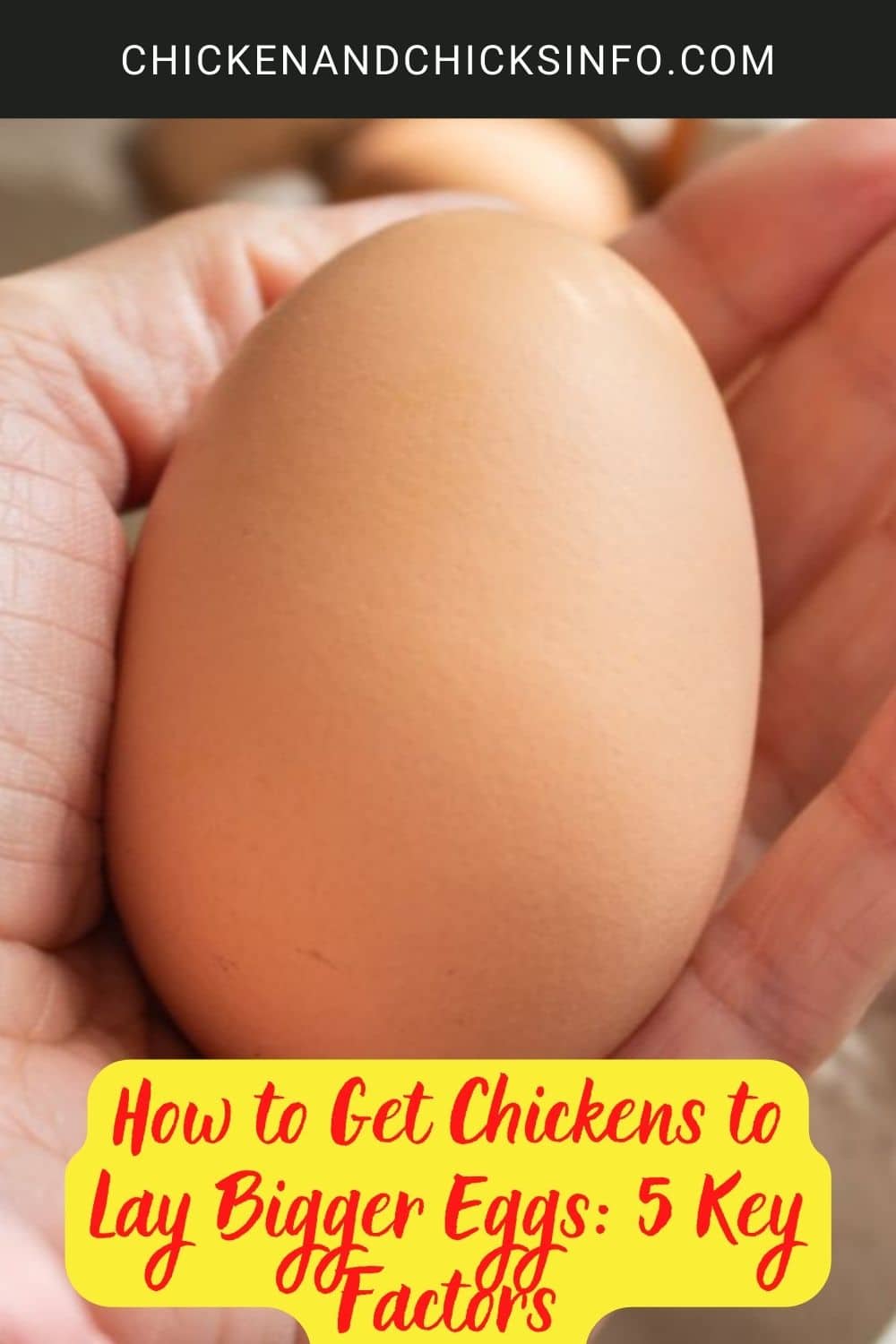
Want to know how to get chickens to lay bigger eggs? Are you hoping to find a jumbo egg in your chicken coop one day?
Most people want their chickens to lay bigger eggs. Especially when they see how small the first eggs are that a hen produces.
Jump to:
Can You Affect the Size of Eggs Your Hen Is Laying?
In a word - Yes.
All hens start off producing what is aptly known as “Peewee” size eggs. These are small eggs weighing less than 1.50 oz. As hen’s mature, so does the size of their eggs until they reach the standard for the breed and their own limitation.
Now, there isn’t much you can do to change the speed of which their egg size changes as they age. But there are some things you can do that will affect the size of eggs they will eventually be laying.
In this article, I will explain what the different egg sizes are. As well as some of the important management factors that control egg size:
What Are the Different Egg Sizes?
If you’re after a Jumbo egg, which you probably know is the largest egg size classification. First, you need to know what you’re looking for on the scales.
Here are the different egg sizes and weights as per U.S. Standards:
| Name | Approx Weight |
|---|---|
| Peewee | 1.25 oz* |
| Small | 1.50 oz* |
| Medium | 1.75 oz* |
| Large | 2 oz* |
| Extra Large | 2.25 oz* |
| Jumbo | 2.5 oz* |
*These are individual egg weights. Egg size is typically measured as the net weight per dozen eggs. You’ll typically see a Peewee listed at 15 oz (1.25 * 12), but it made more sense to list them individually for the purpose of this post.
Egg Sizes Around the World
If you’ve found conflicting information Googling this information, it’s probably because egg sizes are classified differently around the world.
In the U.K. for example, eggs are sold in just four different sizes as follows:
| Name | Approx Weight |
|---|---|
| Small | 1.85 oz or less |
| Medium | 1.85-2.22 oz |
| Large | 2.22-2.57 oz |
| Very Large | 2.57 oz or more |
5 Factors That Affect the Size of Egg a Chicken Lays

Now you know what size eggs you’re hoping for, here are some factors that can help your chooks produce larger eggs:
Bigger Hens Lay Bigger Eggs
There is a definite correlation between the size of a hen and the size of the eggs she’ll produce. Which makes perfect sense if you think about it.
There are a number of ways you can safely increase the size of your hens. The most reliable is to get them from a breeder that produces larger hens.
Leghorn chickens, which are the breed that lays the eggs you get from the supermarket are typically around 2.5 kg (5.5 lbs) fully grown. These will produce eggs classified as large, which are around 2.25 oz.
So, you need to either look at rearing a larger, heavier Leghorn or look at breeds that are naturally bigger. The Buff Orpington, for example, is nearer 7 lbs fully grown and is known to produce larger eggs than the Leghorn.
Protein Level in Feed
The amount of protein hen’s are getting in their feed can affect their egg-laying in both size and quantity.
If you feed a higher layer of protein in their feed during the first couple of months of egg production - such as 18%-20% - you will likely increase egg size.
When a flock has reached its maximum egg product it’s believed that higher-protein diets will no longer make any difference. It’s more a way of boosting their production and size to what they’re capable of during those important first few months.
Amount of Light

The number of hours of light a hen gets in a day is known to influence egg size. You can accelerate or delay the age that a hen will start to lay eggs by restricting or increasing the number of hours of light they are getting.
For example, the younger a hen is when she starts laying, the smaller her eggs will be and the longer it will take for them to increase in size. You can delay egg production by restricting light to or fewer hours a day until they are 19 weeks of age.
General Diet
It should come as no surprise that the higher the quality of a chicken’s diet, the higher the quality eggs they produce.
You should be providing a high-quality laying feed. As well as making sure they’re getting enough calcium, and supplement their diet with plenty of fresh greens, such as vegetables and herbs, and other nutritions scraps as possible.
I’ve covered the benefits of feeding chooks parsley as just one of the herbs that are great for them. As well as radishes, which are high in nutrition and water content if you want some further reading.
This is why backyard chickens that are thrown scraps leftover from meals are known to produce large, tasty eggs.
Promote Happy and Healthy Lifestyles
Along with great nutrition comes great living conditions. Anyone who keeps chickens will know that a happy chicken is a healthy chicken, and a healthy chicken is a prolific layer of quality eggs.
Hen’s that have plenty of room to roam and socialize with other chickens will be happier and not get stressed out. The pros and cons of battery hens vs free-range hens have been well documented at this point, so I don’t need to go to that level.
Just think about how happy your chooks are and if they need anything they’re currently not getting.
In Summary - 5 Ways How to Get Chickens to Lay Bigger Eggs
All of the factors I covered about can have a strong influence on how soon your hens start to lay, how often, and the size of the eggs they’ll be producing.
There are a lot of factors that contribute to egg size. You’re not going to be able to work miracles, but you absolutely can make a difference.
I’ve spoken with numerous chicken farmers that have turned medium egg layers producing large eggs, large egg layers into jumbo egg layers and so on by using some of the above factors.





